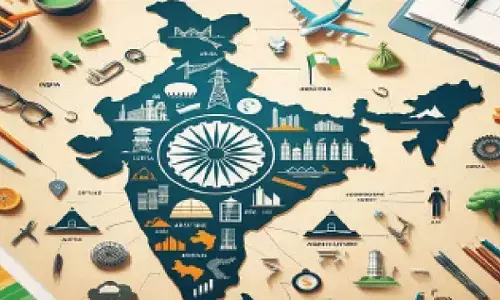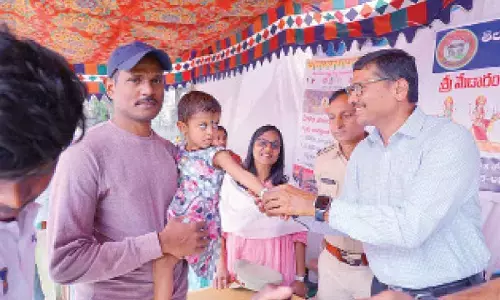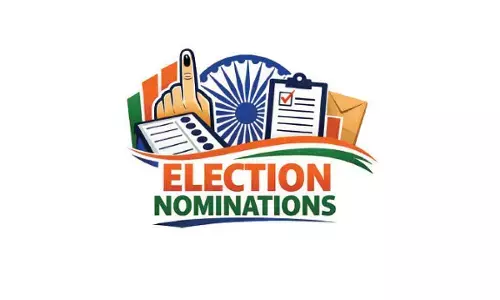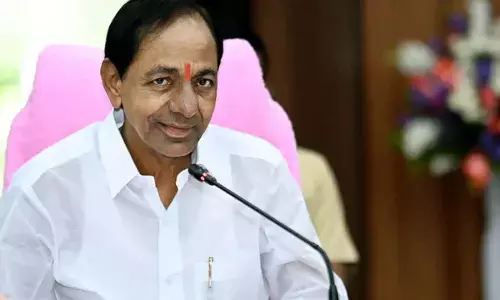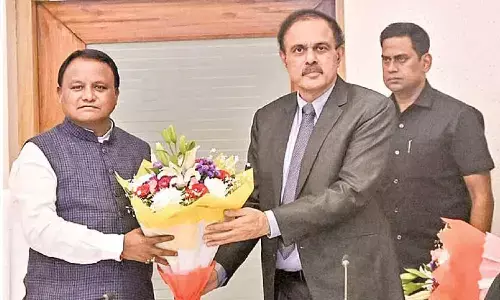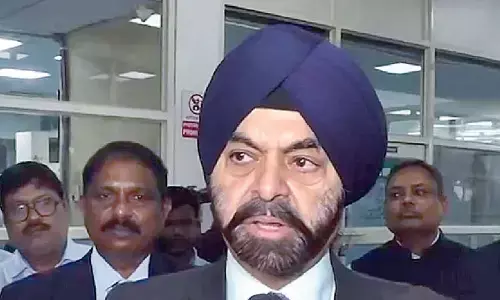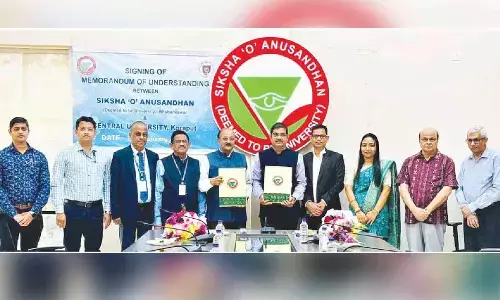Only uplifting people at the bottom can stop freebies politics in India!
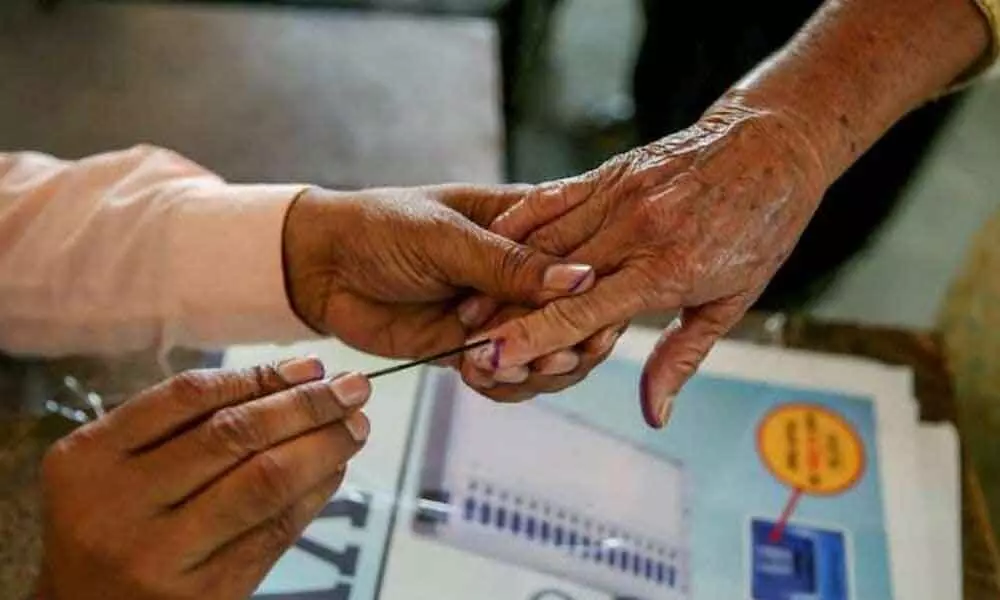
Suddenly it looks as if the sky has opened up. It is raining freebies. It happens every five years.
Suddenly it looks as if the sky has opened up. It is raining freebies. It happens every five years. Six months before the State Assembly elections (and for that matter the General elections) political leaders open the purse. Cutting across party lines, and with the kind of promises they make, it looks as if they are ready to perform the magical trick – to take a rabbit out of the hat for you if they win elections. Not their hat of course, for they have learnt the art of seducing the voters with public money.
How much the promise of Rs 15 lakh in your bank accounts must have swayed the 2014 election result in favour of BJP is for the experts to work out but there is no denying that all kinds of electoral promises that are thrown at voters as allurements obviously do work. Otherwise I see no reason why would politicians try to excel each other in make tall promises before elections knowing well they would not be held accountable once they are voted to power. All you need is to be a little more imaginative when making a promise, to ensure that you are able to tickle the voter's nerve.
At a time when the youth in Punjab seems to be in a great hurry to settle abroad, I thought the political leadership would be trying their best to check the brain drain by creating economic conditions that meet their aspirations back home. But political parties on the other hand are actually in a race to facilitate their exit. Knowing well that several studies have shown that roughly 1.5 lakh students leave Punjab every year for studies abroad, and find ways to settle there, political parties it seems are not even remotely concerned at stemming this dangerous tide. After all, at this rate, many believe that in the years to come Punjab will be bereft of its enterprising youth, with the brightest of the lot having already migrated abroad.
Instead, the two major political parties are providing sops that would make it relatively easy for students to migrate. Ahead of the State Assembly polls, Punjab Chief Minister Charanjit Singh Channi has announced interest-free loans to students for going abroad, along with free coaching for IELTS, TOEFL and PTE exams. Earlier in August, president of Shriomani Akali Dal (SAD) and a former Deputy Chief Minister, Sukhbir Singh Badal, had announced an interest-free loan package of Rs 10 lakh for students that would also cover the coaching expenses for IELTS courses that enable students to study abroad.
Given the continuing crisis in farming, and the lack of appropriate employment opportunities, the youth is looking for greener pastures abroad. This is a sad reflection of the failure of successive governments to bring in policies and approaches that could make agriculture a vibrant proposition, that too in a frontline agricultural state, and at the same time provide an effective and functional public health and educational infrastructure. Call it freebies or populism, the fact is that because the government fail to work for the people when they are in power, these kinds of temptations are thrown at them during the electioneering phase.
In what appears to be a competition of sorts, first the Aam Aadmi Party (APP) promised Rs 1,000 per month for women (not only in Punjab but also in Goa and Uttarakhand) along with 300 units of free power for every household, and this was followed by a promise of doubling this amount to Rs 2,000 per month by the Congress party head, Navjot Singh Sidhu. In a timely editorial: No Freebie lunch, Times of India has also listed other promises including a financial assistance of Rs 5,000 to Rs 20,000 for girl children in Classes 5 to 12, free e-scooter for girl college students in Punjab. For Uttar Pradesh, BJP has promised Rs 1,100 for primary school students for buying school stuff, and Rs 2,000 to 1 lakh girl students. Congress general secretary Priyanka Gandhi has promised smart phones and e-scooty to girl students if voted to power. The freebies list is quite long.
In the 2017 State Assembly elections, the former Chief Minister Capt Amarinder Singh for instance had proposed to waive off all outstanding farm loans saying: Karza kurki khatam, Fasal di puri rakam (waiving off of farm debt, outlawing land auctioning and dispassion; and time-bound procurement of grains at MSP). Although only about Rs 4.600 crore of farm debt has been waived off since then, against an estimated Rs 80,000 core plus outstanding, I only wish he had instead of making a half-hearted promise set in a process of rebuilding agriculture. If Punjab had managed to resurrect agriculture, by initiating crop diversification and moving away from intensive farming to agro-ecological farming systems, it would have brought out the government's intent to help improve agriculture and restore environmental health.
Why only Punjab, I have never understood why State governments are reluctant to set up a commission for farmers income and welfare. Why can't the State governments make an effort to ensure an economically-viable farm livelihood by taking steps that are within their reach? For instance, why can't State governments on their own entrust Agriculture Universities and Departments of Agriculture to prepare an Ease of Doing Farming index? Most problems farmers are faced with are linked to governance failure, and this is something the State's should address. Why wait for directions from the World Bank to start such an exercise.
This is primarily because when in power the government's focus invariably shifts to corporate. Whether at the Centre or in the States, economics only means providing sops, tax concessions and stimulus packages to companies. Whenever there is an effort to provide financial assistance and support to the poor including farmers, a dominant section of the media tries to run it down as populism. Popular leaders succumb to media pressure (and also from mainline economists who say the same), and encourage policies that feature on the failed concept of 'trickle down'. More sops and that includes huge tax cuts for corporate is seen as a sign of economic growth, as it is generally believed to 'trickle down' to the poor at a later stage. But it hasn't. As a study by London School of Economics shows that 50 years of tax cuts for the rich have failed to 'trickle down'. It has only helped the rich amass wealth.
If only when in power, the political leadership instead of only aiding the companies also makes a sincere effort to uplift the people at the bottom and the middle rung, there would be no need to shower freebies at the time of elections. What some people term as 'populism' actually constitutes what real economics should be. If you deprive people of what they really need, you will have to throw allurements at them. This can only be stopped if political masters try to follow what economist EA Schumacher had conveyed through his seminal work Small is beautiful – treat economics as if people matter.
(The author is a noted food policy analyst and an expert on issues related to the agriculture sector. He writes on food, agriculture and hunger)











